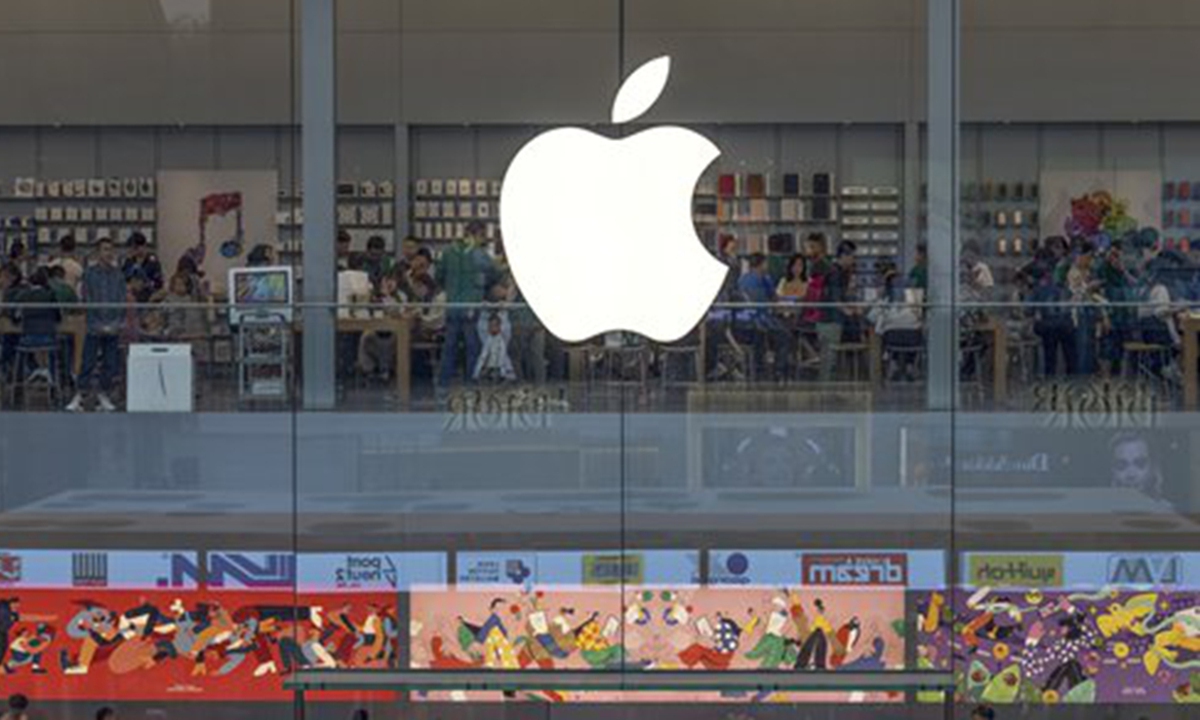
An Apple store in Chengdu, Southwest China's Sichuan Province. Photo: IC
Five Chinese students sued Apple for not providing chargers in May this year, triggering a wide discussion among Chinese netizens about whether they could win the lawsuit against the tech giant, receiving more than 340 million reads on China's twitter-like Sina Weibo as of press time.
In May this year, one of the students surnamed Fang and other team members filed an application to the Beijing Dongcheng District People's Court. They wanted Apple to include a charger with their mobile phone purchase, and took responsibility for breaking the service contract and paid 100 yuan ($15.67), and also covered the litigation costs, according to a report by Shanghai Law Journal on Sunday.
Some netizens expressed their support for the university students as their mobile phone couldn't be used without a charger, which could be regarded as "a commodity defect."
But others argued that the consumers agree to not having a charger when they buy this product.
Besides, some argued that "the application should ask Apple to maintain their original prices but supply a charger as well," noting that the company might have good intentions at the beginning because some people may indeed already have several chargers at home.
The students are from Beijing University of Chemical Technology and Donghua University in Shanghai. Fang had bought an iPhone 12 Pro Max, but found that no charger came with it and she chose to safeguard her rights by using legal weapons. The trial lasted two hours, and was conducted online this September.
The legal representatives of Apple said the packaging outside the iPhone 12 Pro Max clarifies the specific commodity without a charger, so that charger is not included in the sales contract. Apple made the decision to not include a charger for environmental protection and packaging reduction purposes, according to the report.
"As a TV remote control box, a charger is a necessary mobile phone accessory," Chang Yachun, a lawyer from Beijing Kangda Law Firm, told the Global Times on Wednesday, noting that, Apple's charger is its exclusive accessory; that is, the mobile phone can't work normally without it, which violates the service contract.
Consumers can negotiate with Apple directly, or conduct investigation and mediation through consumer associations, or sue to apply for sales return, Chang said.
This incident is not the first time that students actively expressed their appeal via legal methods. In 2019, a Chinese university student sued Shanghai Disney Resort for banning visitors from taking food into the park. The resort eventually agreed to pay 50 yuan ($7) in compensation.




